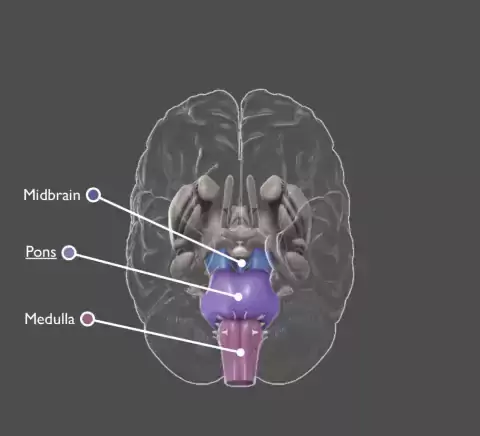Understanding and Coding MDS Item J1900B: Falls Since Admit/Prior Assessment: Injury (Not Major)
Understanding and Coding MDS Item J1900B: Falls Since Admit/Prior Assessment: Injury (Not Major)
Introduction
Purpose:
MDS Item J1900B, "Falls Since Admit/Prior Assessment: Injury (Not Major)," focuses on documenting falls that result in non-major injuries for residents in long-term care. Accurate coding of this item is essential for developing effective fall prevention strategies and ensuring residents receive appropriate care after falls that cause minor injuries. Proper coding helps facilities track patterns, mitigate risks, and improve overall resident safety. Non-major injuries may include skin tears, bruises, or minor cuts that still require attention and documentation.
What is MDS Item J1900B?
Explanation:
MDS Item J1900B identifies falls that resulted in injury, but not major injury, occurring since the resident's admission or prior MDS assessment. Falls in nursing homes, even when resulting in minor injuries, can significantly impact a resident's health and well-being, making this item critical for monitoring the effectiveness of fall prevention and intervention strategies.
- Relevance: Falls with minor injuries may not require hospitalization but still necessitate changes in care plans or additional monitoring. Accurately tracking these falls ensures that risks are addressed and appropriate interventions are put in place to prevent more serious incidents.
- Importance: Correct coding of J1900B helps the facility comply with regulatory requirements, informs quality improvement initiatives, and enhances resident care planning.
Guidelines for Coding MDS Item J1900B
Coding Instructions:
-
Identify Eligible Falls:
Determine whether the resident has experienced any falls since admission or the last MDS assessment that resulted in injuries that are not classified as major. Examples of non-major injuries include:- Bruises
- Skin tears
- Superficial cuts
- Abrasions
-
Answering J1900B:
- Code 0 (None) if the resident has not experienced any falls with injury (not major) since admission or the prior assessment.
- Code 1 (One) if the resident has had one fall resulting in an injury (not major).
- Code 2 (Two or More) if the resident has had two or more falls resulting in non-major injuries.
-
Documentation Requirements:
The resident’s medical record must clearly document the fall(s) and the resulting non-major injury. Documentation should include descriptions of the injuries (e.g., location, size of the bruise or tear), treatment provided, and any necessary follow-up care. -
Verification:
Verify the total number of falls that resulted in non-major injuries and ensure each incident is recorded accurately in the resident’s file. Only falls leading to minor injuries that required treatment should be counted under J1900B.
Example Scenario:
Mrs. Rodriguez, an 82-year-old resident, slipped while trying to get out of bed. She suffered a skin tear on her forearm, which was treated with a bandage. Since this fall resulted in a non-major injury, code 1 (One) for J1900B.
Best Practices for Accurate Coding
Documentation:
Ensure that all falls, including non-major injuries, are documented with details about the type of injury, the treatment provided, and any subsequent changes to the care plan. Incident reports should be filled out promptly and thoroughly, describing the injury and any follow-up care.
Communication:
Encourage interdisciplinary communication to ensure that falls and resulting injuries are accurately reported and documented. Nursing staff should immediately report falls and document them in the resident’s medical record.
Training:
Provide regular training for staff on fall prevention, identifying and documenting minor injuries, and the importance of timely reporting. Educating staff on recognizing and documenting non-major injuries ensures proper coding and effective care planning.
Conclusion
MDS Item J1900B is vital for tracking falls that result in minor injuries, which, although not life-threatening, still require attention and can impact a resident’s care. Accurate coding helps facilities develop fall prevention strategies, assess the effectiveness of interventions, and enhance overall resident safety. Proper documentation and interdisciplinary communication are essential for accurate coding of J1900B.
Click here to see a detailed step-by-step on how to complete this item set
Reference
For more detailed guidelines on coding MDS Item J1900B, refer to the CMS’s Long-Term Care Facility Resident Assessment Instrument 3.0 User’s Manual, Version 1.19.1, October 2024, Chapter 3, Section J, Page 3-88.
Disclaimer
Please note that the information provided in this guide for MDS 3.0 Item J1900B: Falls Since Admit/Prior Assessment: Injury (Not Major) was originally based on the CMS’s Long-Term Care Facility Resident Assessment Instrument 3.0 User’s Manual, Version 1.19.1, October 2024. Every effort will be made to update it to the most current version. The MDS 3.0 Manual is typically updated every October. If there are no changes to the Item Set, there will be no changes to this guide. This guidance is intended to assist healthcare professionals, particularly new nurses or MDS coordinators, in understanding and applying the correct coding procedures for this specific item within MDS 3.0. The guide is not a substitute for professional judgment or the facility’s policies. It is crucial to stay updated with any changes or updates in the MDS 3.0 manual or relevant CMS regulations. The guide does not cover all potential scenarios and should not be used as a sole resource for MDS 3.0 coding. Additionally, this guide refrains from handling personal patient data and does not provide medical or legal advice. Users are responsible for ensuring compliance with all applicable laws and regulations in their respective practices.










